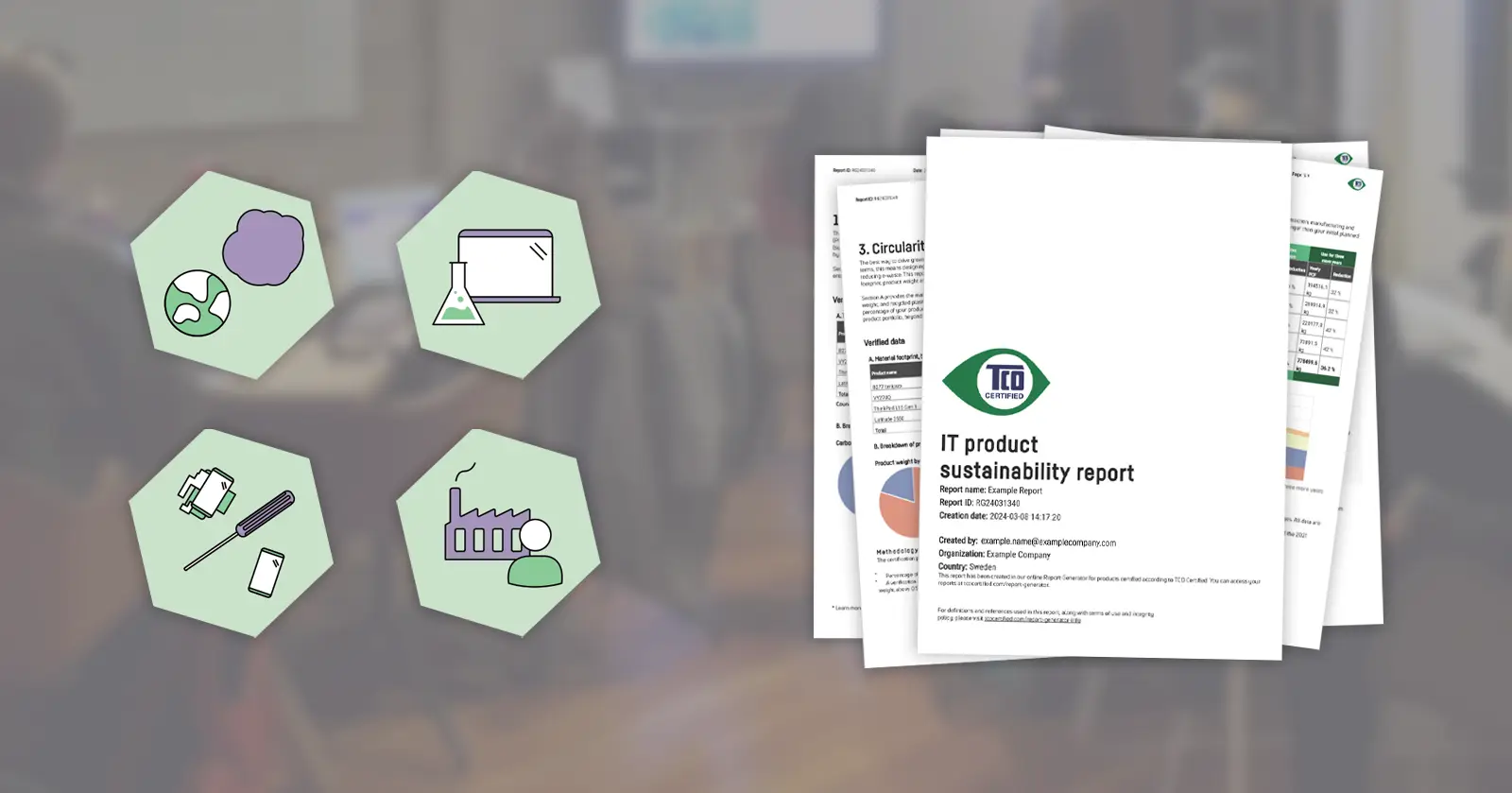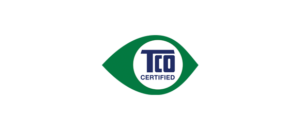The system behind TCO Certified incentivizes change and guides the IT industry to more sustainable practices. Independent verification, follow-up, clear consequences and dialog with brand owners are some of the tools that ensure that positive and long-lasting change happens.
Using TCO Certified helps you get your voice into the IT supply chain, where you can impact critical areas such as health and safety, wages, worker representation and working hours. It’s a resource-effective way of driving social sustainability. You don’t need deep knowledge in sustainability or a network of experts that have access to factories all over the world. We set relevant criteria and verify compliance for you, saving you time and resources.
The system that drives social responsibility includes three pillars, all equally important. From strict criteria to an ongoing dialog with IT product brand owners — this is how social sustainability happens with TCO Certified.

The first pillar: comprehensive and up-to-date criteria
The social criteria in TCO Certified are comprehensive and go beyond legislation and industry standards to challenge the IT industry and drive progress. All criteria are mandatory, which means that to get certified, products must meet every single criterion in TCO Certified.
Social criteria in TCO Certified are divided into five areas:
- Supply chain responsibility: Code of conduct compliance and corrective actions independently verified, covering labor and health and safety laws in the country of manufacture, ILO’s core conventions, and United Nations Convention on the Rights of the Child.
- Supply chain transparency: Major sub-suppliers must be declared. The brand owner must appoint a Senior Management Representative (SMR) with the authority to ensure that certified products meet criteria for socially responsible manufacturing.
- Anti-bribery management system: The brand owner must have an anti-bribery management system that is independently assessed to align with ISO 37001 Anti-bribery standard.
- Process chemicals management: Information on the type of process chemicals used at the factory must be submitted and those used to clean the certified product must be independently assessed as safer and listed on TCO Certified Accepted Substance List.
- Responsibly sourced minerals: Certified products that contain tin, tantalum, tungsten, gold and cobalt must have the sources of these minerals submitted for independent verification. The process to identify the smelters and refiners must align with the OECD Due Diligence Guidance for Responsible Supply Chains of Minerals from Conflict-Affected and High-Risk Areas.

The second pillar: independent verification and follow-up
With TCO Certified, compliance with all criteria is independently verified by accredited experts. They spend more than 20,000 hours on product testing and supply chain assessments each year. This is how it works.
- When non-conformities are detected, a corrective action plan is set up. The brand owner is responsible for correcting the issues within a set timeframe.
- If this fails to happen, certificates can be removed.
- Factories with unsolved issues may also lose the right to manufacture certified products. This way, more ambitious factories get more business, which incentivizes factory management to prioritize sustainability.

The third pillar: annual assessments and interviews with brand owners
In addition to meeting the mandatory criteria in TCO Certified, brand owners must prove that they work proactively with social sustainability. To do this, they must complete our annual assessment process, which rates the maturity of their supply chain management system in critical social impact areas. The annual assessment process also ensures that brand owners take an active role toward their supply chain and commit to the long-term, structured work needed to implement positive, lasting change.
- The annual assessment process includes a questionnaire, supporting documentation which is required to prove that the stated information is correct, and an interview with an independent social verifier.
- The questionnaire and interview are intended to help brand owners anticipate emerging risks and support their suppliers in addressing them.
- Once anonymized, we share the results with participating brand owners in a yearly report to help them gain new insights and move in the right direction faster.
- Insights from the annual assessment process also help us develop new criteria with maximum relevance and impact.




